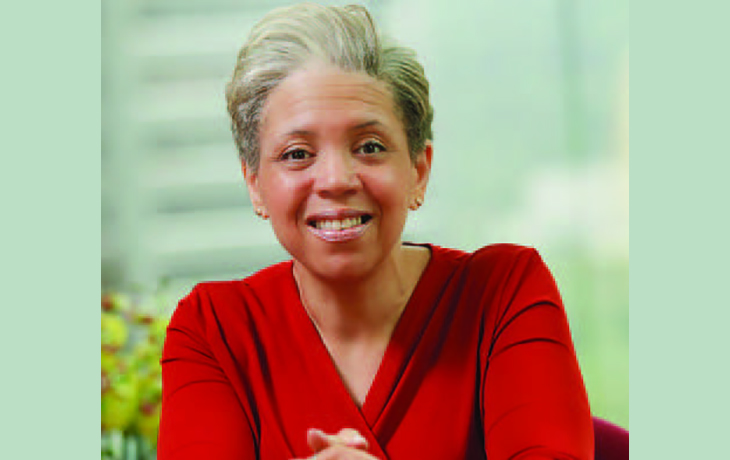Percentage of employees ‘of color’ a work in progress, company says
by Rob Taylor Jr.
Courier Staff Writer
How many companies are just “going through the motions” and “not holding themselves accountable” when it comes to Diversity, Equity and Inclusion these days? “Roughly 80 percent,” according to a report, “Elevating Equity: The Real Story of Diversity and Inclusion,” cited in a recent article from SHRM, or the Society for Human Resource Management, a professional HR membership association.
But the New Pittsburgh Courier has learned that Duquesne Light, one of the largest and most recognizable companies in the Pittsburgh region, is trying its hardest to make DE&I a priority, and not be part of that “80 percent.”
Duquesne Light on July 20 made public its first Diversity, Equity and Inclusion Report, 17 pages of information that spells out exactly what the utility company is doing to increase its total number of Black (and other people of color) employees, while assuring current employees that their voices will be heard by upper management.
“We just want to make sure that people know that we’re in this together and that we do believe in Diversity, Equity and specifically Inclusion,” Sara Oliver-Carter, DLC’s chief diversity officer, told the Courier in an exclusive interview, July 21. “At the end of the day…if we have great people working for DLC, which we do, then those great people can translate all that value and innovation that they’re feeling to our customers that then support our communities.”
In addition to naming Kevin Walker as its first Black president and CEO of the company in June, three Business Employee Resource Groups have been formed in the past year, including the African American group, “B.R.I.D.G.E.,” which stands for Building Respect, Inclusion and Diversity by focusing on the Growth of Employee Excellence and Engagement. The group has 70 members, and is growing, Duquesne Light said.
“B.R.I.D.G.E. has been on this extraordinary journey,” Oliver-Carter said, including holding the company’s first Juneteenth celebration and getting Dr. Martin Luther King Jr. day to be recognized as an “official holiday” for the company. Also, “we have brought in some senior leaders like Evan Frazier (of The Advanced Leadership Institute) to talk about what mentorship and leadership look like.”
The group also brought in Kelauni Cook, CEO of Black Tech Nation, to discuss how more African Americans can get involved with Artificial Intelligence and other new technology advances. In February, the group published a special-edition company newsletter to raise awareness and highlight opportunities to observe Black History Month in the workplace and community. And members of B.R.I.D.G.E. have helped clean-up efforts in the predominantly-Black Homewood neighborhood, specifically during Juneteenth.
The report shed light on other areas, too, such as what Duquesne Light spent on “Diverse Suppliers,” something that local Black community leaders constantly pressure companies and governments to utilize more. The amount spent increased from 3.2 percent in 2019 to 5.3 percent in 2020. Also last year, the company obtained corporate memberships to five local and regional chambers/councils, including the Eastern Minority Supplier Development Council.
“These partnerships are essential for not only identifying diverse suppliers, but also for certifying them to ensure they are qualified and aligned with our business needs,” the Duquesne Light report read.

SARA OLIVER-CARTER, DLC CHIEF DIVERSITY OFFICER
When it came to the total number of current employees at DLC classified as “People of Color,” its report read that there are 14 percent, although the report also showed that there are “21 percent” total classified as “People of Color” in the two counties DLC serves, Allegheny and Beaver. The report did note that just because there are 21 percent classified as “People of Color” in those counties doesn’t mean that there is a “labor availability” of 21 percent. Any way it’s sliced, Oliver-Carter admitted that there is a significant gap between the two numbers, 14 and 21 percent.
“I’m glad to see that number (14 percent),” Oliver-Carter told the Courier. “There’s always been a thought in utilities that there aren’t people of color. There really are. What that says to me is that we have a good start on it, but we could do a little bit better. That’s what our theme is, we’re ‘building a table together.’ We’re a little bit new at this. I’m going to admit that. And so, we’re kind of finding our way. So, we’re going to be working towards continuing to build a diverse pipeline, continuing to ensure that everybody has equity in the process and also just introducing new pathways to recruit people into Duquesne Light, into the utility space.”
Oliver-Carter said Duquesne Light is working with students at the mostly-Black Nazareth Prep Catholic high school, introducing them to the utility industry, and DLC is looking to work with more schools on that initiative.
Overall, Oliver-Carter told the Courier, she’s working to assure that people don’t look at working at Duquesne Light as just “climbing up poles…There are other spaces within a utility where people could have life-changing employment.”
Oliver-Carter added: “We’re building this table together. We’re excited about the opportunity to present to the community and our customers our journey in Diversity, Equity and Inclusion and we’re looking forward to continuing the conversation.”